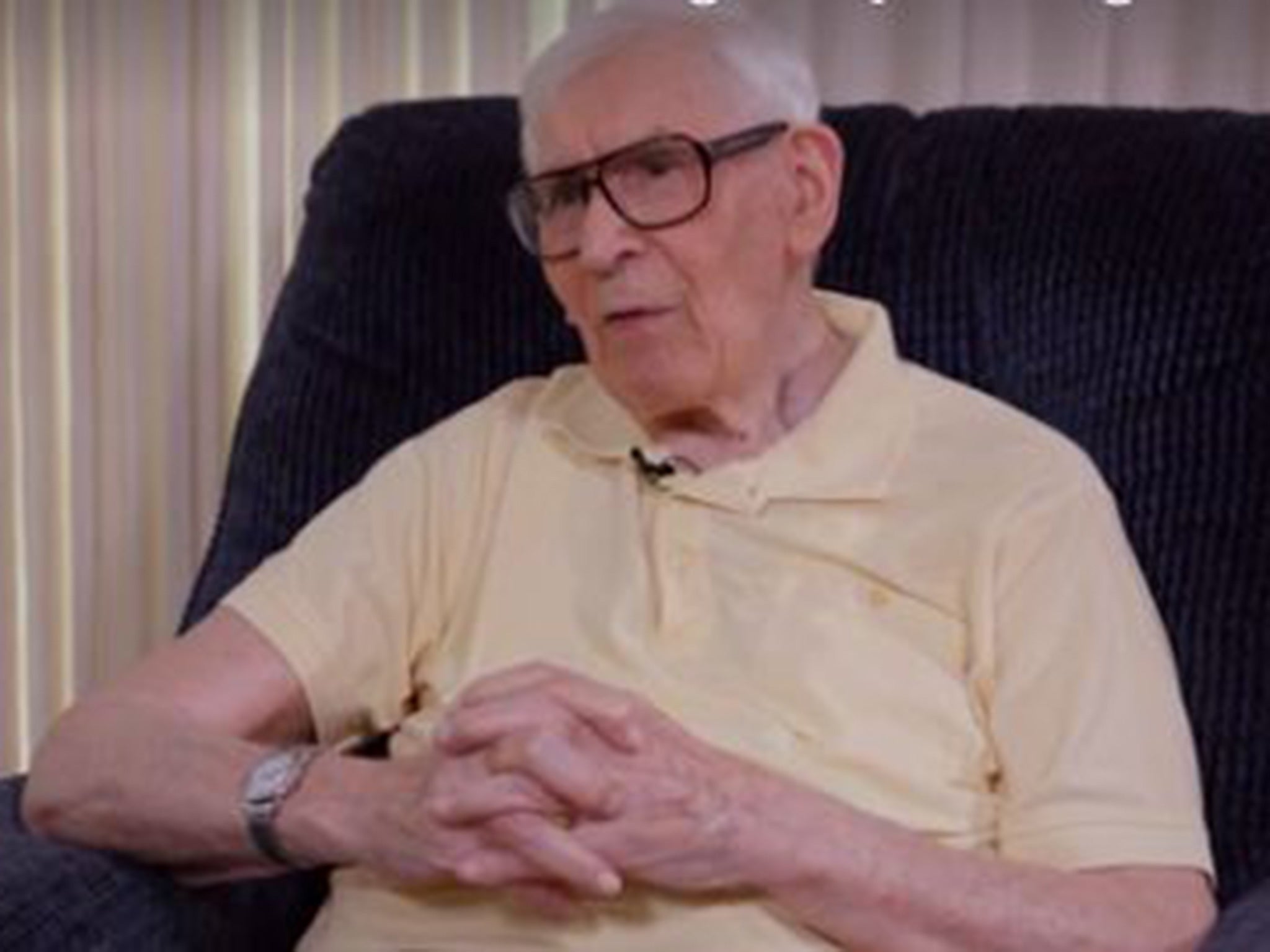100-year-old scientist wants lab funding for next birthday present
Frank Kummerow has dedicated much of his life to researching the effects of trans fats

Your support helps us to tell the story
From reproductive rights to climate change to Big Tech, The Independent is on the ground when the story is developing. Whether it's investigating the financials of Elon Musk's pro-Trump PAC or producing our latest documentary, 'The A Word', which shines a light on the American women fighting for reproductive rights, we know how important it is to parse out the facts from the messaging.
At such a critical moment in US history, we need reporters on the ground. Your donation allows us to keep sending journalists to speak to both sides of the story.
The Independent is trusted by Americans across the entire political spectrum. And unlike many other quality news outlets, we choose not to lock Americans out of our reporting and analysis with paywalls. We believe quality journalism should be available to everyone, paid for by those who can afford it.
Your support makes all the difference.Fred Kummerow, the 100-year-old University of Illinois scientist whose decades of warnings helped compel the federal government to eliminate artificial trans fat in U.S. food supply, has a birthday coming up Sunday.
What do you get for the 101-year-old who has everything?
Kummerow has little interest in presents. He certainly doesn't want one of those cakes with icing that's likely to contain trans fat. Instead, in a heartfelt note Tuesday to friends and colleagues, Kummerow asked for a different kind of gift: Funding to keep his university lab up and running.
"I want to keep the Burnsides Research Laboratory functioning for several more years, but I only have funding through October 15," Kummerow wrote. "I take no compensation, and my staff is currently working on half-time appointments to help keep the lab going. I need $250,000 annually for the lab."
The lab is where Kummerow did much of his groundbreaking research over the years on the heart-clogging properties of artificial trans fat. That work began in the 1950s when he convinced a local hospital to let him examine the arteries of people who had died from heart disease. He soon realized that the tissue contained massive amounts of trans fat, which had become a common ingredient in processed foods throughout the United States.
Despite Kummerow's growing body of research and repeated warnings throughout the years, artificial trans fats remained a staple of processed food. Well into the 1980s, many scientists and public health advocates insisted that partially hydrogenated oils were preferable to more natural saturated fats. The food industry liked that trans fats were relatively cheap, extended the shelf life of food and helped created ideal tastes and textures.
Eventually, the tide turned. More studies began to show the role trans fat was playing in the soaring rates of heart disease in the United States. Researchers and public health experts agreed people should cut back on the consumption of trans fats, if not avoid them entirely. In 2006, after years of urging by consumer advocates, the Food and Drug Administration finally required that the substance be listed on nutrition labels. Food companies subsequently began removing trans fat from many products, though it lingered in a broad array of foods, from baked goods to ice cream.
In 2009, frustrated by a lack of more action, Kummerow filed a 3,000-word citizen petition with the FDA, citing the mounting evidence that trans fat was harming public health and requesting that it be banned from the U.S. market. In 2013, he sued the FDA and the Department of Health and Human Services, asking a judge to compel the agency to respond to his petition, which had gone unanswered.
Months later, the FDA announced its plans to effectively eliminate trans fats by saying that the substance no longer would be assumed safe for use in human foods. In June, the FDA made good on that promise, saying it would give manufacturers three years to reformulate products or to petition the agency for an exception. (The industry already is seeking a number of exceptions).
"Science won out," Kummerow told The Post on the day of that announcement.
He said in his letter Tuesday that he looks forward "to the day I can go to a grocery store, read labels, and find no trans fat anywhere. We're getting closer." But with that battle mostly behind him, Kummerow is looking ahead. He said he wants to refocus his research onto Alzheimer's disease, "since I believe there is a dietary component to it."
Reached by phone Tuesday, Kummerow said the lab's two employees currently are working full time but have been receiving only half pay in order to keep the operation running. He said he will soon submit a proposal to the National Institutes of Health, asking for a multi-year grant for their research. But even if the government approves the application, which is far from certain, it likely would take until next July for any funding to arrive.
"From now until July, I need some money from someplace," Kummerow said, "and I don't know where I'm going to get it yet."
Mostly, he just wants to find a way to continue the sort of scientific pursuits that have driven him for decades.
"Some of you may be wondering about my life balance, but for me, work is actually play!" Kummerow wrote Tuesday. "My secret to a long and healthy life -- eat nutritious food, find something you love doing and emulate Michelangelo's statement, 'I am still learning.' "
Washington Post
Join our commenting forum
Join thought-provoking conversations, follow other Independent readers and see their replies
Comments